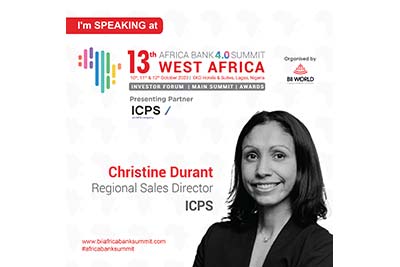How is the West Africa region responding to the adoption of latest digital solutions and payment technologies?
The West Africa region has shown a remarkable response to the adoption of the latest digital solutions and payment technologies. Governments and private sectors alike have recognised the potential of these advancements to drive economic growth and financial inclusion. Initiatives like mobile money platforms, digital wallets, and contactless payment systems have gained significant traction.
Central banks and regulators have worked together to build an ecosystem that promotes financial inclusion.
How do you predict the future journey for Fintech-Bank will be this year. What are the defining changes in this relationship from the past?
This year is the year of collaboration. Fintechs bring agility, innovation, and specialised expertise to the table, enabling banks to enhance their digital services rapidly. Banks, on the other hand, provide the trust, regulatory compliance, and established customer base that Fintechs can leverage to scale their offerings. This synergy is resulting in innovative financial products, such as streamlined payment solutions, digital lending platforms, and personalized wealth management tools.
Overall, the future journey for Fintech-Bank collaborations promises to be one of symbiotic growth, with each entity contributing its strengths to create a more robust and customer-focused financial ecosystem.
According to you, which area of the West Africa Region’s financial sector will witness remarkable innovation in the future? – and why?
- Fintech Collaborations
- Payment Innovation (Digital/Cashless/Contactless)
- Role of Advanced technology and its implementation
- Financial Inclusion
Fintech Collaborations
These are flourishing for many reasons. Investors don’t shy away from Fintechs anymore, much on the contrary. Nigeria has the most fintech startups in Africa with 136, followed by South Africa with 107 and Kenya with 78, according to Disrupt Africa.
While other areas such as payment innovation and advanced technology implementation are indeed important, fintech collaborations stand out as the area poised for remarkable innovation.
Payment Innovations, despite the changing landscape, are still hindered by regulation, and cannot remain the same as fintechs. Technology bears the same burden. Financial inclusion has been the talk of the day since 2011. Indeed, the “Maya Declaration on Financial Inclusion” was made during the Global Policy Forum of the Alliance for Financial Inclusion (AFI) held on October 30, 2011, in Riviera Maya, Mexico. The declaration aimed to promote and prioritize financial inclusion policies and actions among AFI member countries. According to the latest data from the World Bank, about 1.7 billion adults were unbanked in 2017. However, financial inclusion has been increasing rapidly, especially with the use of mobile phones and fintech solutions. The International Monetary Fund (IMF) projects that the unbanked population will decline to 1.3 billion by 2023, with the largest reductions in Sub-Saharan Africa and South Asia.
With reference to the insights you shared at the event – how relevant and important you feel is the topic that you addressed.
The topic “Banks must deliver on Digital experiences” is extremely relevant and crucial. In a digital era, customers expect user-friendly and convenient services. Fintech competitors and changing customer behavior are driving this shift. Exceptional digital experiences enhance customer loyalty, boost efficiency, and offer personalized services. It’s vital for banks to adapt to digital trends to remain competitive, satisfy customers, and drive operational effectiveness.
The topic “Does regulation influence payment innovation or it is the other way around?” is crucial in understanding the interplay between rules and technological progress in payments. It’s relevant because it explores whether regulations shape innovation or vice versa. This dynamic impacts consumer protection, industry collaboration, and global trends. Recognizing this relationship helps balance innovation with compliance, shaping the future of payments.
How would you think attendees will benefit by attending the13th Africa Bank 4.0 Summit –West Africa?
Attendees at ABS Nigeria 2023 will benefit greatly. They’ll gain industry insights, network with professionals, learn from experts, and access innovative solutions. With expert speakers and regulatory updates, they’ll stay ahead in a dynamic financial landscape. It’s a valuable investment for professional growth and staying competitive.


